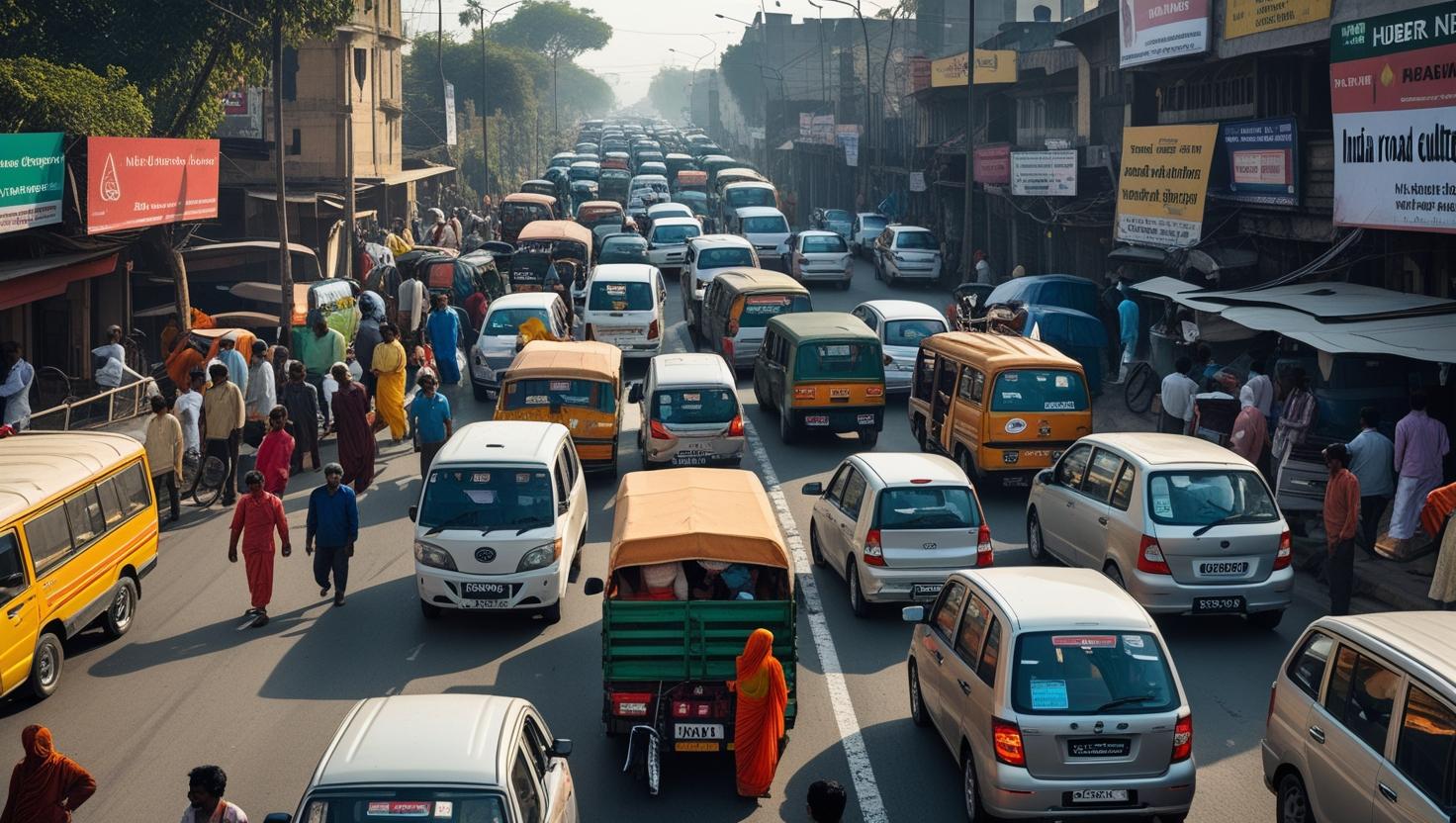🛣️ Introduction: Why Road Culture in India Matters
Indian Road Culture are among the busiest and most diverse in the world — from motorbikes and bullock carts to luxury sedans and commercial trucks, all sharing the same space. However, this diversity also reflects a troubling reality: India has one of the highest road accident fatality rates globally.
At Hubert Ebner India, we believe that road safety begins with a shift in road culture — not just rules, but the everyday habits, attitudes, and values that shape how we drive, walk, and share the road.
🚦What is “Indian Road Culture”?
Road culture refers to the unspoken behaviors and social norms people follow while using roads — how we give way, obey signals, respect pedestrians, or even react to traffic jams. In India, this culture has often been shaped by:
- Overcrowded roads and poor infrastructure
- Lack of driving education and testing standards
- A general “adjust kar lo” (adjust-it-yourself) mindset
- Low enforcement of traffic laws
- Social hierarchy even on roads (VIP vs common users)
- A focus on reaching faster, not safer
❌ What Needs to Change in Indian Road Culture?
Here are key behaviors that urgently need reform:
1. Redefining “Right of Way”
In many Indian cities, intersections become battlegrounds. Drivers don’t yield, often block turns, and ignore pedestrian crossings.
🔁 Change Needed: Introduce right-of-way education in schools and driving schools alike.
2. Overtaking & Lane Discipline
Cutting lanes, driving in the wrong direction, and overtaking from the left are common—and dangerous.
🔁 Change Needed: Promote lane-based driving and use of side mirrors through mandatory training programs.
3. Respect for Pedestrians
Zebra crossings are rarely honored, forcing pedestrians to navigate speeding vehicles.
🔁 Change Needed: Enforce pedestrian-first zones and stricter penalties for non-compliance.
4. Using Horns and High Beams Excessively
In India, horns are used as a substitute for brakes or indicators. High beams blind others instead of aiding night vision.
🔁 Change Needed: Public campaigns on responsible horn use and night-time headlight etiquette.
5. Helmet and Seatbelt Compliance
Many view helmets and seatbelts as optional, especially for short distances.
🔁 Change Needed: Expand awareness on how most fatal injuries occur during short trips and low-speed collisions.
6. Respecting Emergency Vehicles
Ambulances and fire trucks often struggle to move through traffic due to lack of public awareness.
🔁 Change Needed: Emergency awareness drills, signage, and automated fine systems.
7. Alcohol and Mobile Phone Usage
Despite strict laws, drinking and texting while driving remains dangerously common.
🔁 Change Needed: Implement tech-based deterrents like ignition locks, dashcams, and app-based driver scores.
📚 Hubert Ebner’s Role in Changing Road Culture
At Hubert Ebner India, we’re not just training drivers — we’re shaping road behavior.
Our interventions include:
✅ Corporate Driver Training Programs
Helping companies reduce fleet accidents with road behavior education.
✅ Defensive Driving Courses
Teaching situational awareness, response training, and mindfulness behind the wheel.
✅ E-Learning for Young Drivers
Gamified modules, real-time feedback & certification to train a safety-first generation.
✅ Training for Police & Transport Authorities
Supporting systemic change through workshops on behavioral change models.
✅ Mass Awareness Campaigns
Through schools, colleges, and public seminars, we promote respect-based driving.
📈 What Better Road Culture Achieves
- 🔻 Reduced accidents & fatalities
- ⏱️ Smoother traffic flow = less fuel waste
- 😊 Less road rage, stress & aggression
- 🚸 Safer roads for children, elders & women
- 🧠 More mindful citizens
- 🇮🇳 A globally responsible road image for India
📞 Ready to Lead the Change?
Whether you’re a corporate fleet owner, educational institution, or government agency, we offer custom programs to help reshape Indian road culture from the ground up.
📍 Operating across Delhi NCR, Mumbai, Bangalore & 20+ cities in India




